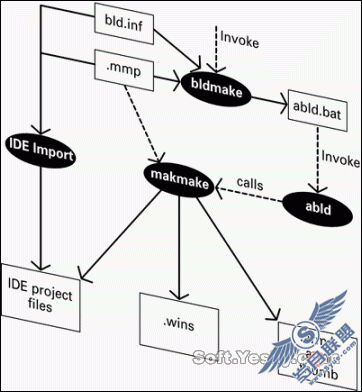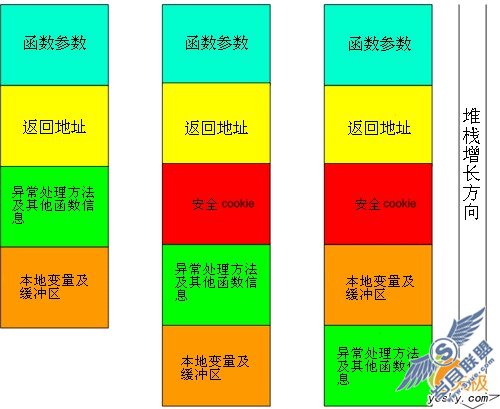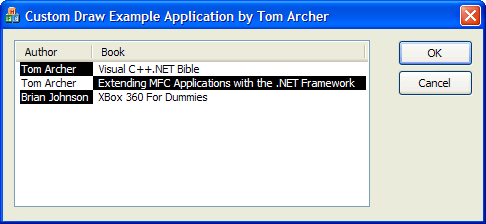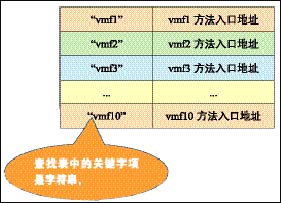利用已有的bind构造ScopeExit
对于 ScopeExit,以前有提到过(见《这种代码结构如何组织?goto or do…while(0)?》http://www.2cto.com/kf/201205/132632.html)。使用场景再简单提一下:
bool GenFile()
{
HANDLE hFile = CreateFile(_T("Test.txt"), GENERIC_WRITE, 0, NUL, CREATE_ALWAYS, 0, NULL);
if (hFile == INVALID_HANDLE_VALUE)
{
return false;
}
CString strData = _T("test");
DWORD dwToWrite = strData.GetLength() * sizeof(TCHAR);
DWORD dwWritten = 0;
if (!WriteFile(hFile, (LPCTSTR)strData, dwToWrite, &dwWritten, NULL) || dwWritten != dwToWrite)
{
CloseHandle(hFile);
return false;
}
// if (...)
// {
// CloseHandle(hFile);
// return false;
// }
//
// ...
//
CloseHandle(hFile);
return true;
}
如上面这部分代码,如果 if … 之类的流程持续下去(如注释部分),每个 return false 之前都得带上 CloseHandle(),非常累赘。因此,出现了类似的 ScopeExit。boost 里有一个 BOOST_SCOPE_EXIT,Loki 里面也有一个 ScopeGuard。
继续使用刚才的案例,BOOST_SCOPE_EXIT 用法:
bool GenFile()
{
HANDLE hFile = CreateFile(_T("Test.txt"), GENERIC_WRITE, 0, NULL, CREATE_ALWAYS, 0, NULL);
if (hFile == INVALID_HANDLE_VALUE)
{
return false;
}
BOOST_SCOPE_EXIT((hFile))
{
CloseHandle(hFile);
}
BOOST_SCOPE_EXIT_END
CString strData = _T("test");
DWORD dwToWrite = strData.GetLength() * sizeof(TCHAR);
DWORD dwWritten = 0;
if (!WriteFile(hFile, (LPCTSTR)strData, dwToWrite, &dwWritten, NULL) || dwWritten != dwToWrite)
{
return false;
}
// if (...)
// {
// return false;
// }
//
// ...
//
return true;
}
这样,每个 return 之前再也不必背负 CloseHandle 的包袱。
Loki::ScopeGuard 的用法:
bool GenFile()
{
HANDLE hFile = CreateFile(_T("Test.txt"), GENERIC_WRITE, 0, NULL, CREATE_ALWAYS, 0, NULL);
if (hFile == INVALID_HANDLE_VALUE)
{
return false;
}
LOKI_ON_BLOCK_EXIT(CloseHandle, hFile);
CString strData = _T("test");
DWORD dwToWrite = strData.GetLength() * sizeof(TCHAR);
DWORD dwWritten = 0;
if (!WriteFile(hFile, (LPCTSTR)strData, dwToWrite, &dwWritten, NULL) || dwWritten != dwToWrite)
{
return false;
}
// if (...)
// {
// return false;
// }
//
// ...
//
return true;
}
从使用的简洁程度上看,Loki 更胜一筹。
另外,我们经常也遇到有条件的执行清理动作的情形,boost 和 Loki 都支持。先看 Loki 的使用案例:
bool GenFile()
{
LPCTSTR FILE_NAME = _T("Test.txt");
HANDLE hFile = CreateFile(FILE_NAME, GENERIC_WRITE, 0, NULL, CREATE_ALWAYS, 0, NULL);
if (hFile == INVALID_HANDLE_VALUE)
{
return false;
}
Loki::ScopeGuard sgDeleteFile = Loki::MakeGuard(DeleteFile, FILE_NAME);
LOKI_ON_BLOCK_EXIT(CloseHandle, hFile);
CString strData = _T("test");
DWORD dwToWrite = strData.GetLength() * sizeof(TCHAR);
DWORD dwWritten = 0;
if (!WriteFile(hFile, (LPCTSTR)strData, dwToWrite, &dwWritten, NULL) || dwWritten != dwToWrite)
{
return false;
}
// if (...)
// {
// return false;
// }
//
// ...
//
sgDeleteFile.Dismiss();
return true;
}
一开始,我们使用具名的 ScopeGuard,绑定了一个 DeleteFile(FILE_NAME) 的操作,到最后通过 Dismiss,让此操作不被执行。
相应地,boost 中,可以在进入 scope exit 之前设定一个变量,将此变量捕获入 scope exit,到最后给这个变量赋值,决定执不执行:
bool GenFile()
{
LPCTSTR FILE_NAME = _T("Test.txt");
HANDLE hFile = CreateFile(FILE_NAME, GENERIC_WRITE, 0, NULL, CREATE_ALWAYS, 0, NULL);
if (hFile == INVALID_HANDLE_VALUE)
{
return false;
}
bool bOK = false;
BOOST_SCOPE_EXIT((hFile)(&bOK))
{
if (!bOK)
{
CloseHandle(hFile);
}
}
BOOST_SCOPE_EXIT_END
CString strData = _T("test");
DWORD dwToWrite = strData.GetLength() * sizeof(TCHAR);
DWORD dwWritten = 0;
if (!WriteFile(hFile, (LPCTSTR)strData, dwToWrite, &dwWritten, NULL) || dwWritten != dwToWrite)
{
return false;
}
// if (...)
// {
// return false;
// }
//
// ...
//
bOK = true;
return true;
}
注意,此处捕获 bOK 的时候才用指针的形式,以保证最后对此变量的修改能影响到 scope exit 内部。
好,预备知识简要介绍到这里。下面我们进入正题,实现一个类似的东西。
为啥要放在现在说这个事情呢?因为前几天刚弄了个 Bind,使用 Bind 实现 Scope Exit 比较简单。从 boost 和 Loki 的两个方案来看,个人更喜欢 Loki 的,boost 玩语法玩得太厉害。通常我们这种需求都是一两行代码(比如上面例子中的 CloseHandle,DeleteFile之类的),而 boost 方案是用来填写一大段代码的,一两行代码的情形下用起来不方便,重复的框架性代码就占了四行,有效功能才占一行,性价比太低了。
Loki 的实现中,有对于多个参数的处理,搞出了 ScopeGuardImpl0、ScopeGuardImpl1、ScopeGuardImpl2、…… 这在 Loki 中没有类似 boost::bind 的设施的情况下是必须的。这里插播一句,Loki 的 Bind 相当的不好用,只能绑定第一个,然后再绑定第一个,…,从而才能完成对所有参数的绑定。boost::bind 灵活多了。有了类似 boost::bind 的设施后,我们利用它山寨一个 Loki::ScopeGuard。当然,我现在是在写 xl::ScopeExit,当然会用 xl::Bind 去实现。本文暂不限定是 xl::Bind 还是 boost::bind。设个预编译开关吧:
#define USING_BOOST_BIND
#ifdef USING_BOOST_BIND
#define BOOST_BIND_ENABLE_STDCALL
#include <boost/bind.hpp>
#define SCOPE_EXIT_BIND ::boost::bind
#else
#include <xl/Meta/xlBind.h>
#define SCOPE_EXIT_BIND ::xl::Bind
#endif
高亮的那句是为了打开 boost::bind 对 __stdcall 调用约定的支持。然后抄 Loki 的 ScopeGuardImplBase:
class ScopeGuardImplBase
{
public:
ScopeGuardImplBase() : m_bDismissed(false)
{
}
ScopeGuardImplBase(ScopeGuardImplBase &that) :
m_bDismissed(that.m_bDismissed)
{
that.Dismiss();
}
~ScopeGuardImplBase()
{
}
protected:
template <typename J>
static void StaticExecute(J &j)
{
if (!j.m_bDismissed)
{
j.Execute();
}
}
public:
void Dismiss() const
{
m_bDismissed = true;
}
private:
mutable bool m_bDismissed;
};
typedef const ScopeGuardImplBase& ScopeGuard;
Loki 在 j.Execute 中有 try … catch …,个人认为不该有(觉得 Loki::ScopeGuard 似乎不该在它自己里面 try … catch …
ScopeGuard 只是帮我们调用一个函数而已,至于这个函数是否有异常出来,它不该悄悄地把它吞了,而应该还我们本来面目,不知道是不是?可是为什么几乎所有介绍 ScopeGuard 的文章都说这 try … catch … 用得好呢?
),所以去掉。
然后对于 ScopeGuardImpl,我们抛开 0、1、2,使用一个超级简洁的实现:
template <typename F>
class ScopeGuardImpl : public ScopeGuardImplBase
{
public:
ScopeGuardImpl(F fn) :
ScopeGuardImplBase(), m_fn(fn)
{
}
~ScopeGuardImpl()
{
StaticExecute(*this);
}
void Execute()
{
m_fn();
}
private:
F m_fn;
};
我们只需要一个参数,一个兼容函数签名“void ()”的可执行对象 F fn。我们保存这个 fn 直到析构的时候去执行它。
已经差不多了,为了使用简便,再抄一个 MakeGuard:
template <typename F>
inline ScopeGuardImpl<F> MakeGuard(F f)
{
return ScopeGuardImpl<F>(f);
}
最后,定义一个可供匿名使用的宏 XL_ON_BLOCK_EXIT:
#define XL_CONN_(s, t) s##t
#define XL_CONN(s, t) XL_CONN_(s, t)
#define XL_ON_BLOCK_EXIT(...) ScopeGuard XL_CONN(sg, __LINE__) = MakeGuard(SCOPE_EXIT_BIND(__VA_ARGS__))
同 Loki 一样,我们使用行号作为“匿名”变量的命名。注意 MakeGuard 后的参数里,需要填写如整个 bind,这在具名使用的时候书写上会麻烦一点点。
好了,已实现完毕,我们再一次用前面的例子来使用它:
bool GenFile()
{
LPCTSTR FILE_NAME = _T("Test.txt");
HANDLE hFile = CreateFile(FILE_NAME, GENERIC_WRITE, 0, NULL, CREATE_ALWAYS, 0, NULL);
if (hFile == INVALID_HANDLE_VALUE)
{
return false;
}
ScopeGuard sgDeleteFile = MakeGuard(SCOPE_EXIT_BIND(DeleteFile, FILE_NAME));
XL_ON_BLOCK_EXIT(CloseHandle, hFile);
CString strData = _T("test");
DWORD dwToWrite = strData.GetLength() * sizeof(TCHAR);
DWORD dwWritten = 0;
if (!WriteFile(hFile, (LPCTSTR)strData, dwToWrite, &dwWritten, NULL) || dwWritten != dwToWrite)
{
return false;
}
// if (...)
// {
// return false;
// }
//
// ...
//
sgDeleteFile.Dismiss();
return true;
}
高亮部分,就是比 Loki 使用起来麻烦的地方。如果明确了是使用 boost::bind 或 xl::Bind,那就写成:
ScopeGuard sgDeleteFile = MakeGuard(boost::bind(DeleteFile, FILE_NAME));
或
ScopeGuard sgDeleteFile = MakeGuard(xl::Bind(DeleteFile, FILE_NAME));
(有个区别是,如果绑定成员函数,boost::bind 的对象指针在第二个参数,xl::Bind 在第一个参数。)
好了,写到这里。请各位指教。
至此,xlLib 里面玩语法的部分也就差不多了。接下来将会注重功能性的东西。
摘自 溪流漫话




